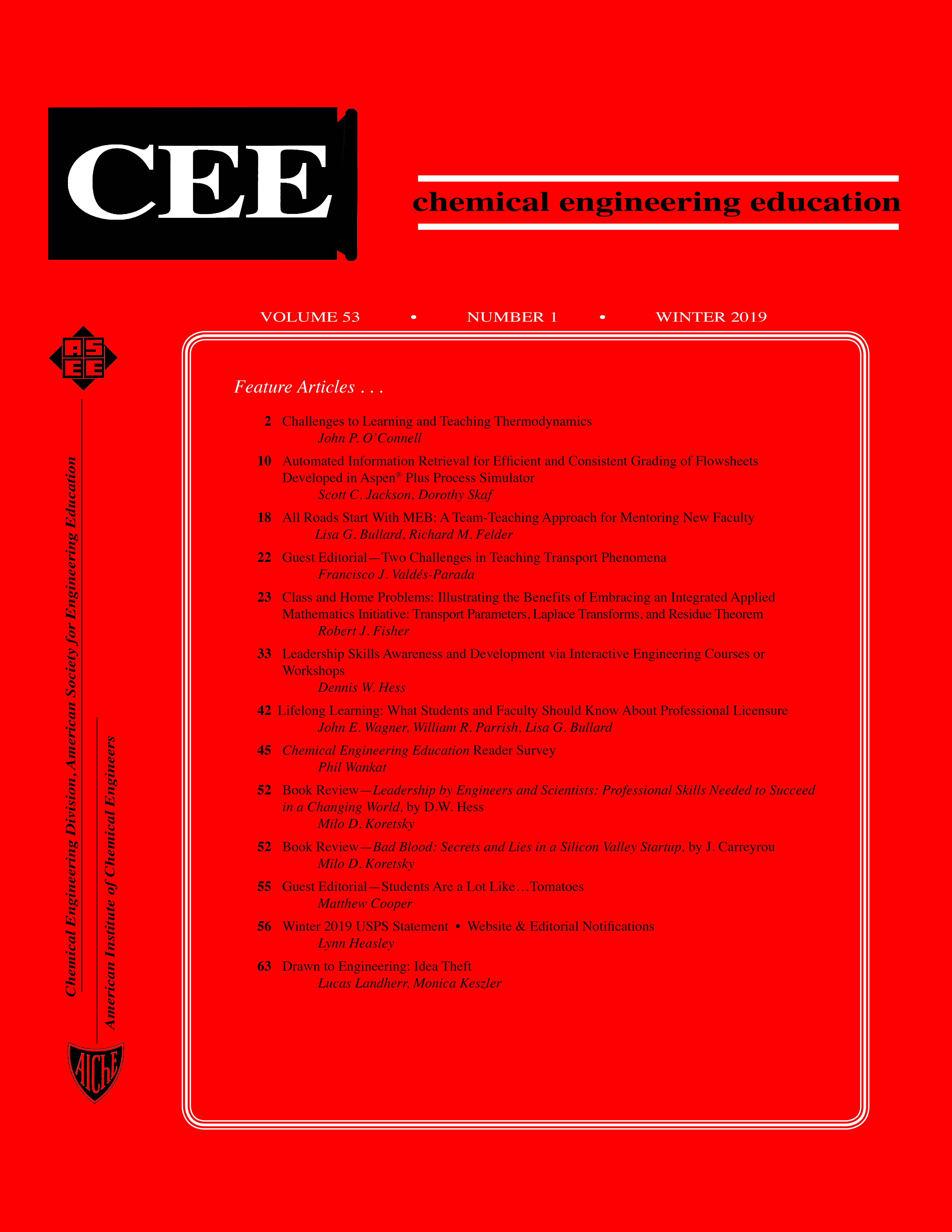Automated Information Retrieval for Efficient and Consistent Grading of Flowsheets Developed in Aspen® Plus Process Simulator
Abstract
EXCEL spreadsheet algorithms were developed at Villanova University to efficiently and consistently retrieve information from ASPEN® flowsheets and used for grading work in senior design. The challenge is to take a large volume of data that is in the stream and unit operations reports and quickly and consistently calculate a list of key grading parameters to judge the quality of submitted flowsheet assignments. Application of this EXCEL algorithm makes it possible to grade work from an entire class in a few hours.


